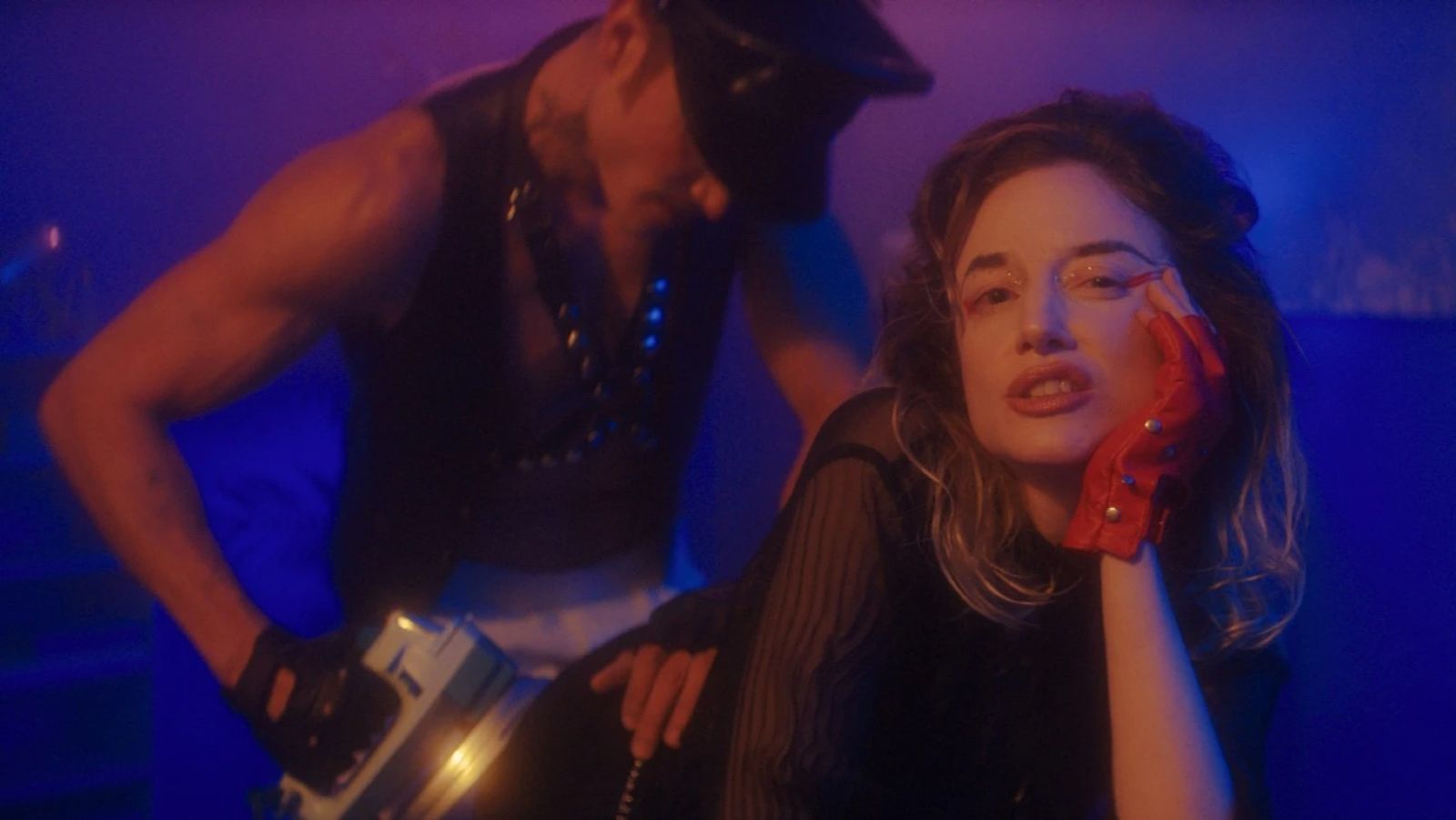If ever a film was “very much a vibe,” as the kids say, it is Please, Baby, Please. Directed by Amanda Kramer from a screenplay by Kramer & Noel David Taylor and starring the great Andrea Riseborough and Harry Melling, it starts at an eleven out of ten. “Traditional” couple Suze (Riseborough) and Arthur (Melling) witness a double-murder while walking home in the Lower East Side. The culprits are The Young Gents, a leather-clad greaser gang straight out casting for The Wild One. Though Kathryn Bigelow’s The Loveless or Walter Hill’s Streets of Fire may be a more appropriate reference here. This act of aggression serves as catalyst for a much-needed reckoning between Suze and Arthur. As long-dormant desires are laid bare, both must finally be honest with one another about everything.
This deconstruction of gender is wrapped in a stripped-down dreamscape aesthetic, often slipping into nightmare. 1950s B-pictures are the clear inspiration, meshed with the barren production design of something from Lars von Trier or Peter Greenaway. There is a plot of some sort—involving our lead couple, The Young Gents, and a well-off wife (Demi Moore) living in a ritzy suite ripe for robbery. Though this is all far less important than our character’s internal struggles.
Karl Glusman is a highlight as Teddy, a sort-of kind-hearted criminal who catches the eye of Arthur (and vice-versa). Teddy’s monologue at the hour mark holds the entirety of Please together in many ways. Musical interludes (often dipped in bisexual lighting) bridge viewers from one sequence to the next, each serving as a song-and-dance Id for one player or another.
Please, Baby, Please is weakest when explaining itself and its themes, Teddy’s central monologue notwithstanding. One understands the impetus to underline motifs and metaphors in something so overt, though it’s often not needed. One scene—over the phone between Arthur and his father—stands outs in particular. Although it does contain this gem of a line: “We’re all walking tragedies, all us guys.”
Now let us praise Andrea Riseborough. The actress is stunning in this picture. From scene to scene she plays a different emotion, a conflicted motivation. Her Suze wants so badly to embrace her masculine side while also be loved by (and understand) her husband. And while she anchors everything happening in the film, thus burdened with much responsibility, she is also the funniest part of this entire endeavor: both the reliable lead (along with Melling) and comic relief. That’s hard to do, folks.
Kramer and Riseborough are clearly on the same wavelength, both understanding that though the representation in Please, Baby, Please is important, it is most vital the film be entertaining. In both respects they find success.
Please, Baby, Please opens in limited release on October 28.

